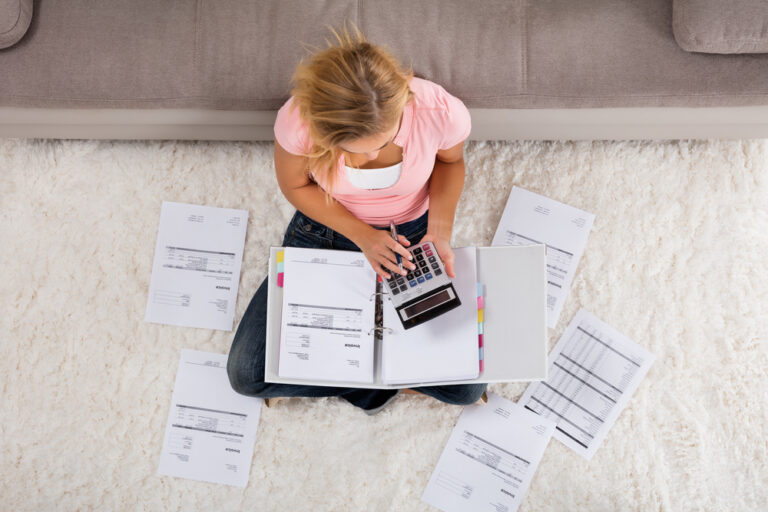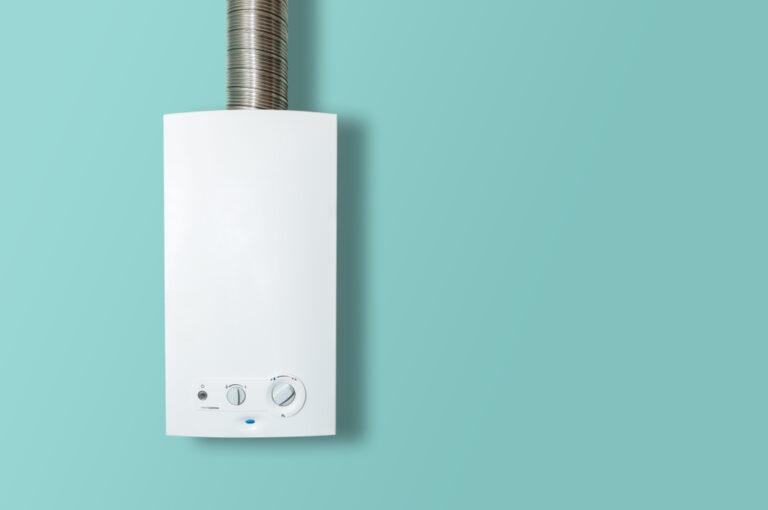Buying your first home is hugely exciting – but saving your deposit can be tough.
According to research from Barclays, 35% of first-time buyers said saving a deposit was the biggest obstacle to them owning a property.
“With a rapidly rising housing market, we know it’s difficult to save a deposit right now,” says Rob Smith, Managing Director of Parkers.
“We recommend you aim for a 10% deposit as this will give you cheaper mortgage deals.
“However, don’t panic, as even if you can only get together a 5% deposit there are schemes and deals out there to help you.”
In this guide, we’ll outline all the deposit options available to you as a first-time buyer…
How much deposit does a first-time buyer need?
Generally, you’ll need at least a 10% deposit to buy a property – but it’s also possible to buy with just 5% through a range of first-time buyer schemes:
1. Help to Buy
The Help to Buy equity loan scheme is open to first-time buyers who have only a 5% deposit.
The scheme will lend you a 20% equity loan to go alongside your 5% deposit, with the other 75% of the property’s purchase price coming through a Help to Buy mortgage.
The equity loan is interest free for five years but tracks your property’s value.
This means the loan’s value can go up or down depending on the value of your property – meaning you could pay back more, or less, than you originally borrowed.
2. Shared Ownership
Under the Shared Ownership scheme, you can purchase a share of a property with a 5% deposit.
The share you can buy will usually be between 25% and 75% of the property’s value and you can purchase this with a mortgage.
You then pay reduced market rent on the share you don’t own.
Because your mortgage will be only on the share you own, the deposit you’ll need is usually much less than if you were buying a home outright.
You can find out more about Help to Buy and Shared Ownership in our comprehensive guide.
3. The government mortgage guarantee scheme
The number of mortgages available for buyers with 5% deposits are usually far fewer than for those with a 10% deposit.
To encourage more lenders to offer loans to 5% deposit buyers, the government launched its 95% mortgage guarantee scheme in 2021.
Under the scheme, the government guarantees a portion of each mortgage offered, providing protection for lenders.
Find out more about the 95% mortgage guarantee scheme in our guide.
What’s the average deposit for a first-time buyer?
According to Barclays, the average deposit paid by a first-time buyer in 2021 was £61,100.
The research also revealed that the average first-time buyer in the UK started saving at 24 years old, before buying eight years later at 32.
Here are the deposits required at 5%, 10% and 15% for a range of property purchase prices:
| Purchase price | 5% deposit | 10% deposit | 15% deposit |
| £100,000 | £5,000 | £10,000 | £15,000 |
| £150,000 | £7,500 | £15,000 | £22,500 |
| £200,000 | £10,000 | £20,000 | £30,000 |
| £250,000 | £12,500 | £25,000 | £37,500 |
| £300,000 | £15,000 | £30,000 | £45,000 |
The benefits of a larger deposit
There are two major benefits that come with saving a bigger deposit:
1. Better mortgage interest rates
The interest rates on offer from mortgage lenders often fall into tiers – with the cheapest rates available for those with deposits of 20% or more.
Generally, the higher your loan-to-value (LTV), the higher the interest rate you’ll pay.
So, the larger your deposit, the lower your LTV is likely to be, meaning you should be able to secure a more attractive interest rate.
2. Less risk of negative equity
Negative equity is when your property is worth less than the mortgage secured on it.
If house prices fall and you own a property with a high loan to value (LTV), the more likely you are to fall into negative equity.
For example, if you buy a £150,000 property with a 5% deposit of £7,500 and property prices fall by 7%, your property would be worth £139,500 but you’d have a mortgage of £142,500 (less any repayments made).
If you purchased the same property with a 15% deposit of £22,500, your mortgage would be £127,500 – less than the new value of £139,500.
Understanding loan to value when saving a deposit
Loan to value (LTV) is the amount you borrow through a mortgage compared with the value of the property you’re buying.
It’s important to LTV when buying a home for the first time and saving a deposit.
The lower your LTV, the lower your mortgage interest rate is likely to be as the lender is taking on less risk.
For example, if you make an offer of £150,000 for a property and you have £30,000 as a deposit, you’d require a mortgage of £120,000.
Your deposit would cover 20% of the property’s value, meaning the LTV would be the remaining 80%.
If you offered on the same property but only had a £15,000 deposit, the LTV would be 90% and you deposit would cover the other 10%.
This could see the lender offer you a less attractive rate, meaning you’ll pay more in interest over the term of your mortgage.
Options to save a first-time property deposit
One of the most common ways for first-time buyers to save a deposit is through help from family.
According to Barclays’ research, 56% of those surveyed said they wouldn’t have been able to get on the property ladder without family support.
1. A gifted deposit from family
A gifted deposit is when a family member gives you money towards your deposit.
Lenders won’t generally accept this if the money is a loan, so it’s important to make sure you’re under no obligation to repay your family member.
The person gifting you the money may also be required to sign a declaration stating the money is a gift and not a loan.
2. A guarantor mortgage
If you’re unable to get a mortgage based on your income and the deposit you have saved, a family member may be able to act as a guarantor for you.
This means they’d be required to step in should you be unable to repay your mortgage.
It’s sometimes possible to get a guarantor mortgage for up to 100% of a property’s value.
But your guarantor would have to have substantial savings or equity in their own home to support you, with your lender either holding some of their cash or placing a charge on their property as security.
Mortgage options for first-time buyers
When looking at the various mortgages available for first-time buyers, you’ll come across terms like ‘fixed rate’, ‘tracker’ and ‘standard variable rate’.
These refer to the different types of mortgage product available to you as a first-time buyer, but they can be confusing, so here’s what each one means:
1. Fixed rate
This type of mortgage is the most common.
You pay a fixed interest rate on your mortgage for a set period, usually between two and five years.
This means you know exactly what you’ll pay each month, and this can help with security and budgeting.
Once your fixed rate term is up, you’ll move on to your lender’s Standard Variable Rate (SVR), which is usually higher than your previous fixed rate and can be changed at any time.
2. Standard Variable Rate (SVR)
A lender’s SVR is the rate most people move on to when their initial fixed term expires. Your lender’s basic rate of interest, it can change at any time.
3. Tracker mortgages
Although they don’t come with the security of a fixed rate mortgage, tracker mortgages can be good if there is a fall in interest rates – but not so good if rates rise.
Because they follow the Bank of England base rate of interest, usually at a percentage above or below that rate, trackers mean your monthly payments can go up or down depending on that BOE base rate.
With UK interest rates at an all-time low currently, the only way for them to go is up, so that will almost certainly rule out a tracker mortgage for the time being.
4. Discount rate mortgages
These, like tracker mortgages, are subject to change, so you don’t get the security of a fixed interest rate, but you will probably benefit if interest rates fall.
Discount rate mortgages are usually at an interest rate deducted from a lender’s SVR, so if that SVR is at 4.5% and you’re on a 1% discount rate, you’ll pay 3.5% in interest.
If the lender’s SVR falls to 4% in line with a fall in UK interest rates, you’d pay 3%.
Costs you’ll need to factor in when saving a deposit
When saving a deposit, you’ll need to consider some of the other costs of buying your first home which could eat into the amount you’re able to put down:
1. Mortgage costs
When you apply for a mortgage, you may have to pay several fees to your lender, including:
Mortgage arrangement fee – up to £2,000
Mortgage valuation fee – £250 to £1,500
Mortgage booking fee – £99 to £250
Some lenders will allow you to add the arrangement fee to your mortgage loan, although be aware this will increase your loan to value (LTV) and could affect your interest rate.
You’ll also pay more interest over the term of your mortgage by adding this fee to your loan.
Mortgage valuation fees are payable up front, so you’ll need to factor this into your savings.
2. Legal costs
When you buy a property, you’ll need to pay a solicitor to complete the legal work.
Solicitor fees vary, but you should budget £1,000 to £1,500.
Some solicitor fees, such as those for local area searches, may be payable up front, with the balance for services paid on completion.
3. Stamp duty
Stamp duty can be costly, but whether you need to pay it as a first-time buyer will depend on the price you’re paying for your first home.
First-time buyers in England pay no stamp duty on the first £300,000 of a property’s purchase price, up to a total value of £500,000.
So, if you’re paying less than £300,000 for your first home, you’ll pay no stamp duty at all.
If you’re paying between £300,000 and £500,000 for your property, you’ll pay 5% of the value over £300,000 in stamp duty.
If you’re buying a home for more than £500,000, you’ll pay standard rates of stamp duty.
Find out more about what stamp duty could mean for you in our guide.
Further reading…
Questions you simply must ask when buying your first home







